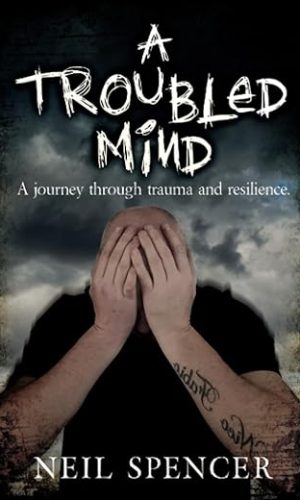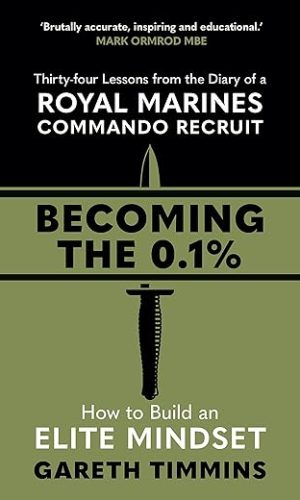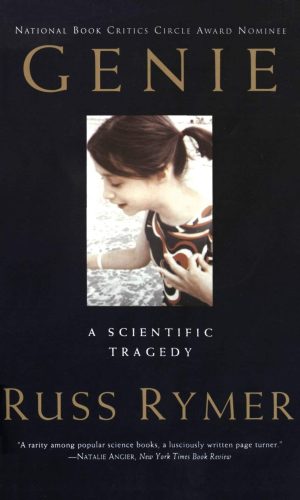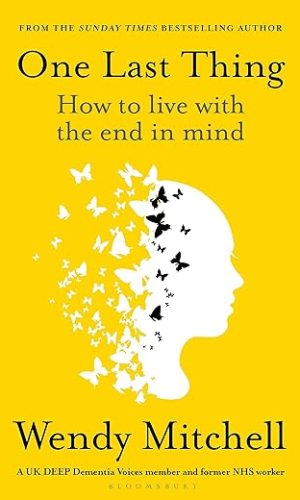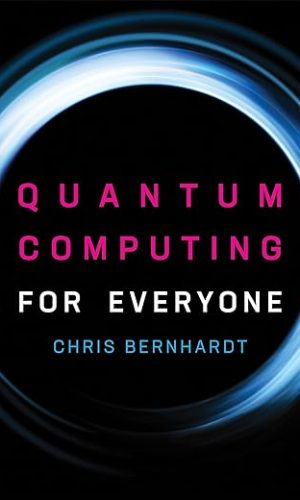Psychology
-
A TROUBLED MIND: A journey through trauma and resilience
Originally published in 2016 as a Battle Within, A soldiers story. A troubled mind is a fully revised and updated version.
Synopsis. Born and raised in Newport, South Wales. A troubled mind follows Neil’s journey through some of life’s most stressful and traumatic events whilst living with OCD and anxiety. During some of his lowest times, he would also get a glimpse into the paranormal world that would give him hope and strength.
This is an inspiring true story of overcoming physical and mental endurance against the odds.Read more
£6.60 -
Becoming the 0.1%: Thirty-four lessons from the diary of a Royal Marines Commando Recruit
‘A practical and no-nonsense guide on dealing with the toughest situations, from someone who has been there and done it.’ — Levison Wood
‘It will help you to navigate life.’ — The Times
***
Historical recruitment campaigns to become a Royal Marines Commando drew on a harrowing but intriguing narrative: 99.9% Need Not Apply. In 2005, only one in a thousand applications for the Royal Marines were successful in reaching the end of training, earning the Coveted Green Beret – a world renowned symbol of excellence.
Becoming the 0.1% is the first-ever diary account of this training regime, charting the odds-stacked journey of Gareth Timmins, a 20-year-old recruit at the time, and providing a psychological framework for understanding how he was able to cultivate the mental strength and resilience needed to push through to success.
Each week of training is accompanied by lessons on his short-comings and growth to peak performance. It uses real-life and often terrifying experiences to describe to the reader the edge you need to cultivate a 0.1% mindset and succeed in life and work, by learning how to:
- Visualise achievements
- Combat fatigue and burnout
- Stay motivated by not losing sight of the end goal
- Eradicate complacency and achieve mastery
- Redefine expectation and regulate disappointment
- Live without convenience
- Thrive under pressure
- Break down self-imposed limitations
- Be held accountable to others
- Break down self-imposed limitations
- Thrive under pressure
- Live without convenience
- Redefine expectation and regulate disappointment
- Eradicate complacency and achieve mastery
- Stay motivated by not losing sight of the end goal
- Combat fatigue and burnout
Read more
£7.00£12.30 - Visualise achievements
-
Genie: A Scientific Tragedy
“A tragic tale of obsession, exploitation, and lost souls. And the questions Rymer poses about human experience and experiments on humans make the story both intellectually absorbing and emotionally disturbing. Genie is a wondrous feat of storytelling and investigative journalism, compulsively readable while forcing us to think hard about our own humanity.” –Amy Tan, New York Times bestselling author of The Joy Luck Club
The compelling story of a young woman’s emergence into the world after spending her first 13 years strapped to a chair in a closed room, and her rescue and exploitation by scientists hoping to gain new insight into language acquisition.
Read more
£10.90Genie: A Scientific Tragedy
£10.90 -
One Last Thing: How to live with the end in mind
WATERSTONES’ BEST BOOKS OF 2023: BIOGRAPHY
The last book from bestselling author and advocate Wendy Mitchell
‘This beautiful book will give hope and courage to many people. An uplifting and courageous read’ KATHRYN MANNIX
‘Anyone who reads Mitchell’s work can only admire her passion, her energy and her extraordinary courage’ SUNDAY TIMESWendy Mitchell doesn’t fear anything anymore. After her diagnosis of young-onset dementia in 2014, all of Wendy’s old fears – the dark, animals – melted away. What more was there to be afraid of when she faced her worst fear: losing her own mind?
While living with her diagnosis and facing the extreme changes that come along with a progressive terminal illness, Wendy wrote two Sunday Times-bestselling books, went skydiving for the first time and supports multiple dementia advocacy groups in the UK. She is known for talking about living with dementia, but now – while she is still able to – she explores dying with it.
In One Last Thing, Wendy embarks on a journey to explore all angles of death: how we can prepare for it, how we talk about it with our loved ones and how we can be empowered to make our own choices. With conversations on the topic of assisted dying, from those who are fighting to make it legal to those vehemently opposed to its practice, Wendy reminds us that to get on with the business of living, we need to talk about death.
Read more
£8.60£16.10One Last Thing: How to live with the end in mind
£8.60£16.10 -
Quantum Computing for Everyone (Mit Press)
An accessible introduction to an exciting new area in computation, explaining such topics as qubits, entanglement, and quantum teleportation for the general reader.Quantum computing is a beautiful fusion of quantum physics and computer science, incorporating some of the most stunning ideas from twentieth-century physics into an entirely new way of thinking about computation. In this book, Chris Bernhardt offers an introduction to quantum computing that is accessible to anyone who is comfortable with high school mathematics. He explains qubits, entanglement, quantum teleportation, quantum algorithms, and other quantum-related topics as clearly as possible for the general reader. Bernhardt, a mathematician himself, simplifies the mathematics as much as he can and provides elementary examples that illustrate both how the math works and what it means.
Bernhardt introduces the basic unit of quantum computing, the qubit, and explains how the qubit can be measured; discusses entanglement–which, he says, is easier to describe mathematically than verbally–and what it means when two qubits are entangled (citing Einstein’s characterization of what happens when the measurement of one entangled qubit affects the second as “spooky action at a distance”); and introduces quantum cryptography. He recaps standard topics in classical computing–bits, gates, and logic–and describes Edward Fredkin’s ingenious billiard ball computer. He defines quantum gates, considers the speed of quantum algorithms, and describes the building of quantum computers. By the end of the book, readers understand that quantum computing and classical computing are not two distinct disciplines, and that quantum computing is the fundamental form of computing. The basic unit of computation is the qubit, not the bit.
Read more
£12.20£13.80Quantum Computing for Everyone (Mit Press)
£12.20£13.80

